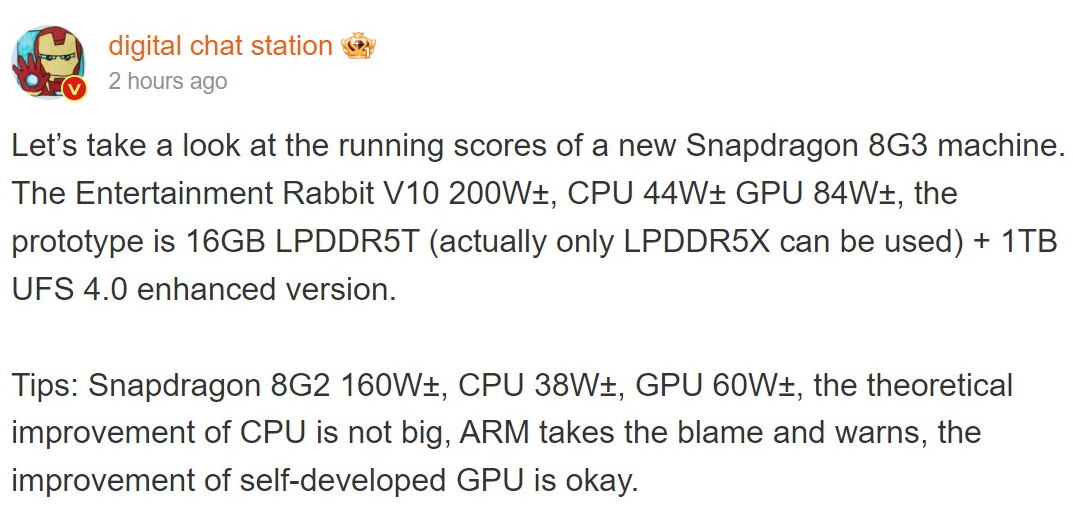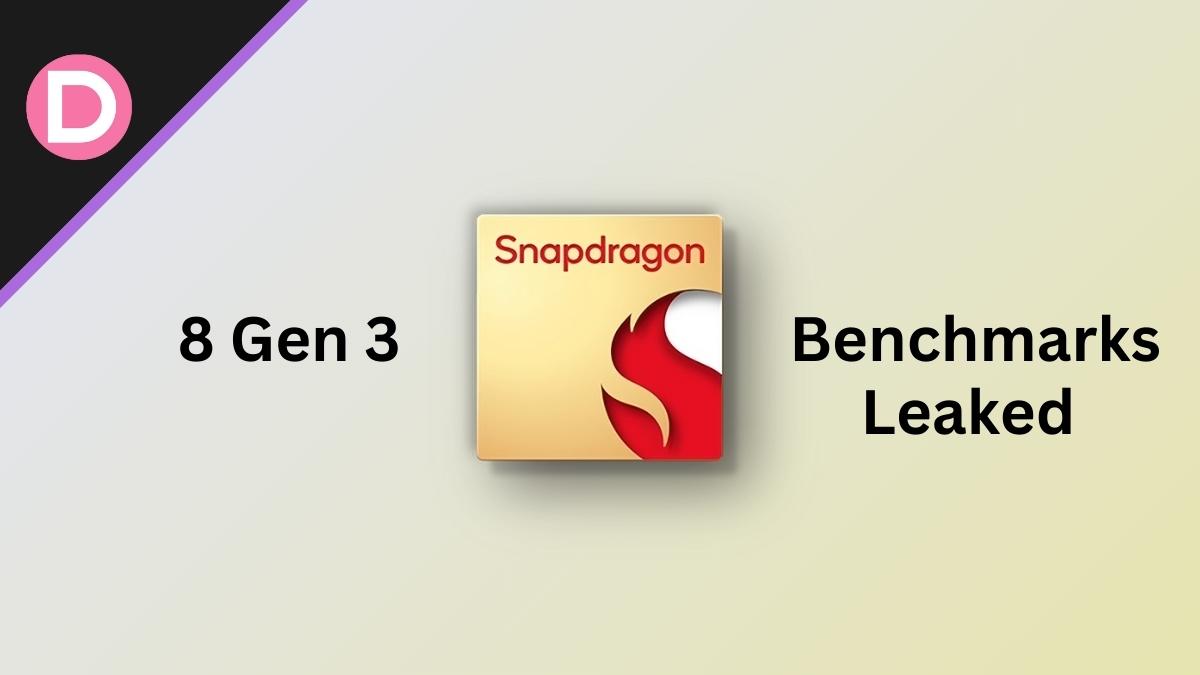Qualcomm’s Snapdragon 8 Gen 3 is the upcoming highest-end mobile processor. The release is later this year. The processor will be the heart of many upcoming Android flagships in 2024. However, unlike Apple’s new A17 Pro, a new 3nm chip, the Snapdragon 8 Gen 3 will stick to the 4nm node.
TSMC’s 4nm node has much better yields, is cheaper, and has better efficiency. TSMC’s efficient N3E is not yet ready for mass use, and the current N3B node isn’t ready. It generates a lot of heat, is expensive to use, and the yield rate is only 55%. This increases the chances of you getting a worse chip. Some chips perform well, but others are poor with thermals and efficiency. Since Apple rushed to use the new 3nm node, this is Quaclomm’s chance to take over.
The 8 Gen 3 will use the tried and tested 4nm TSMC node, which doesn’t have such issues. One year is plenty of time to perfect and optimize it for upcoming Android flagships. While the A17 Pro scores much higher in AI benchmarks, the 8 Gen 3 could surpass it there, too.
Even though the Snapdragon 8 Gen 3 is still in development, a few of its benchmarks have been leaked online, giving an idea of the performance. Recently, the Geekbench 6 Vulkan score was released, which was remarkable. The Snapdragon 8 Gen 3 scored about 15,434, which is extensively higher than the 8 Gen 2, which scores approximately 10,000. This confirms the rumors that the new Adreno 750 GPU will be 50% more powerful than the Adreno 740 of 8 Gen 2.
8gen3 vulkan geekbench6 is too strong! It is much higher than 8gen2, which is about 1000 points. pic.twitter.com/kZSAn0mKx3
— ICE UNIVERSE (@UniverseIce) September 25, 2023
The 8 Gen 2 already had a more powerful GPU than the Apple A16 Bionic. The 8 Gen 3 will likely compete with Apple’s A17 Pro in GPU. However, Another benchmark result shows The Snapdragon 8 Gen 3 seems to have increased drastically even in CPU performance. The Geekbench multi-core result shows an increase from 3828 to 7400. This score of 8 Gen 3 beats Apple’s A17 Pro in CPU as well, which hasn’t happened before. For comparison, the A17 Pro attained a Multi-core score of 7288.
https://twitter.com/Tech_Reve/status/1704466046227558870
It isn’t easy to directly compare the GPUs since they use Vulkan and Metal, and very few tools directly compare them. Antutu isn’t cross-platform; Geekbench only measures the CPU scores and is known to be biased toward Apple Silicon.
While Qualcomm could overtake Apple in the multi-core Geekbench test, it’s not likely in the single-core department. The A17 Pro scores close to 2900 in the single-core, and the 8 Gen 3 will barely cross 2100. Apple’s core configuration is also different, with two and four-performance cores and a hexacore chip. The 8 Gen 2 uses three efficiency cores, one prime core, two performance cores, and two medium-tier cores for an octa-core setup.
The 8 Gen 3 could use a 1 (prime)+ 5 (mid-tier)+ 2 (efficiency) layout. Other reports say it’ll come with a 1 (prime)+ 3 (performance)+ 2 (mid-tier) + 2 (efficiency) setup.
Update Oct 9: According to Digital Chat Station, Qualcomm’s upcoming Snapdragon 8 Gen 3 chipset AnTuTu benchmark tests show only modest performance gains over the current Snapdragon 8 Gen 2. In the AnTuTu benchmarks test, the Snapdragon 8 Gen 3 scored around 2 million points overall, representing just a 25% increase over the 1.6 million the Snapdragon 8 Gen 2 scored.

However, the Snapdragon 8 Gen 3’s GPU saw a bigger boost, with a GPU score of 840,000 in AnTuTu – 40% higher than the Snapdragon 8 Gen 2’s 600,000 points. While the CPU gains are relatively minor, the Snapdragon 8 Gen 3 looks set to deliver substantially improved graphics power compared to its predecessor.

